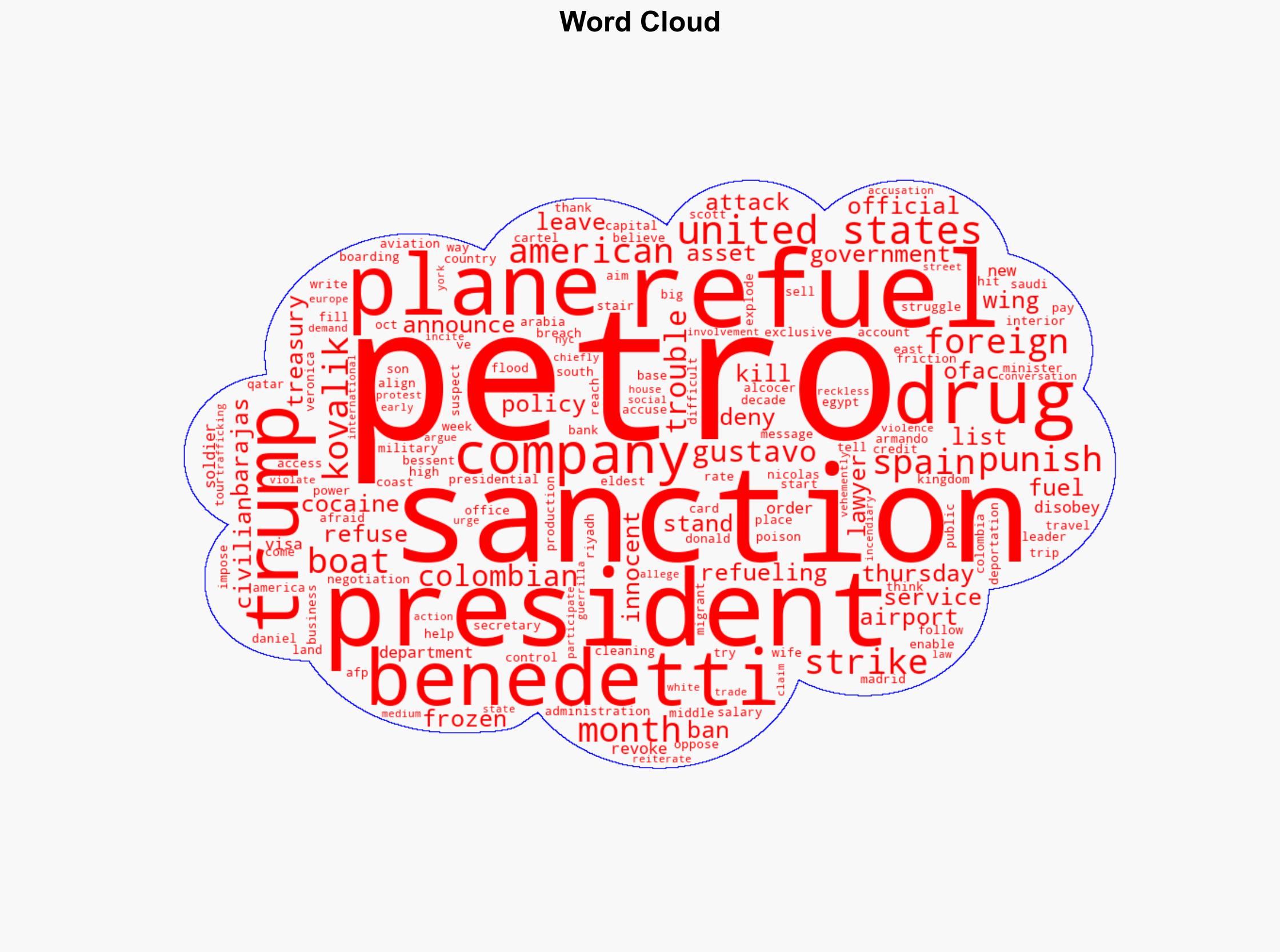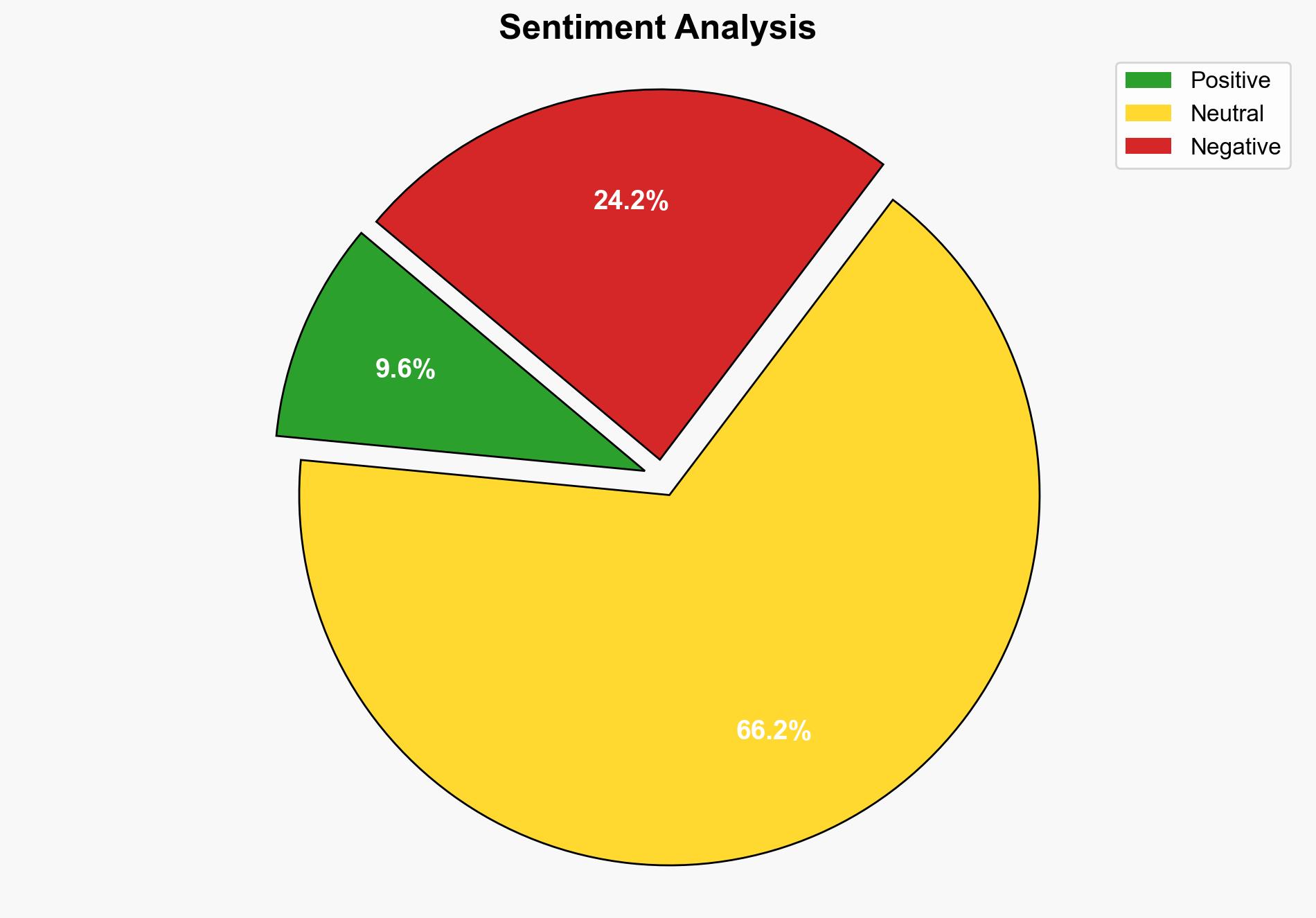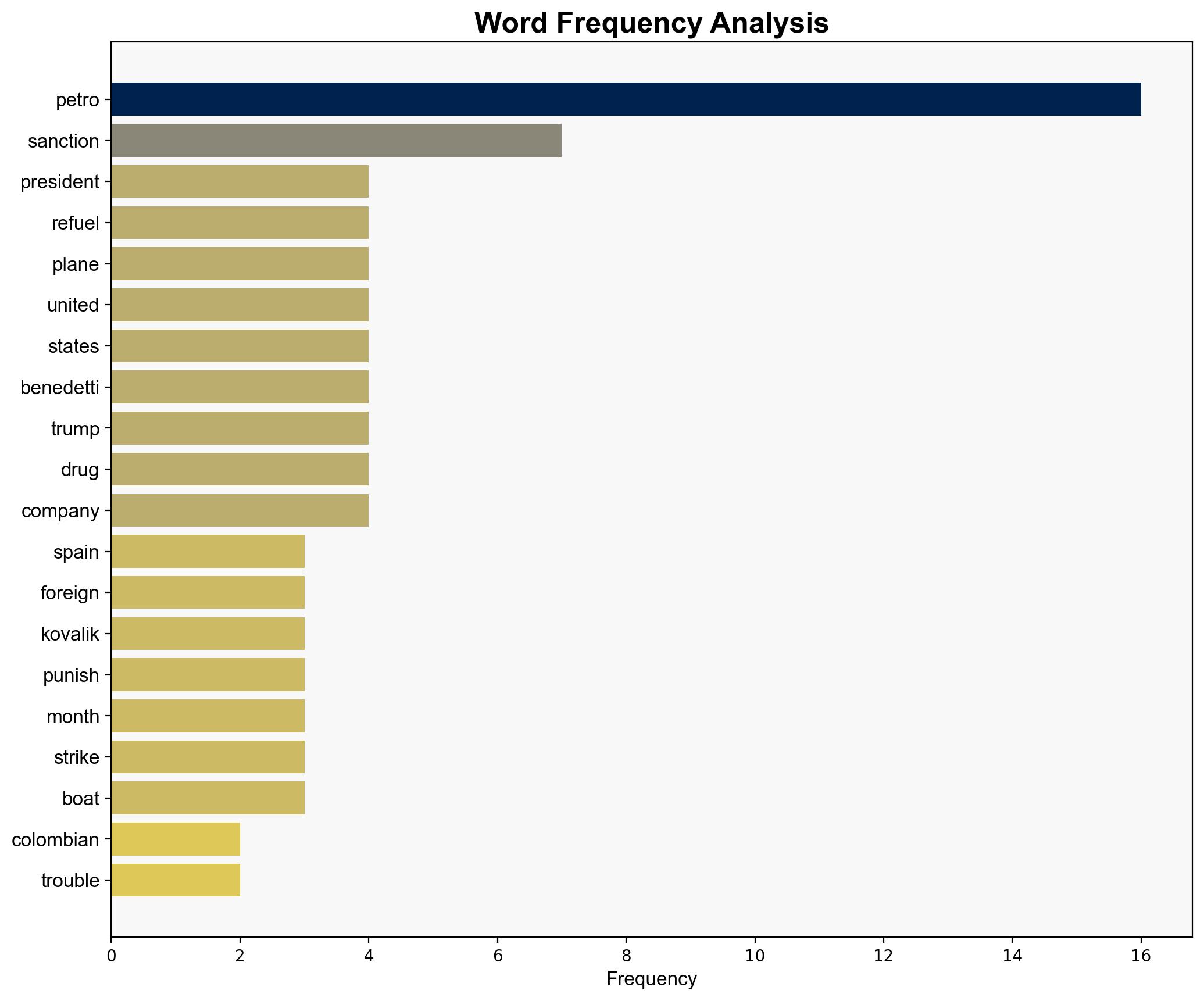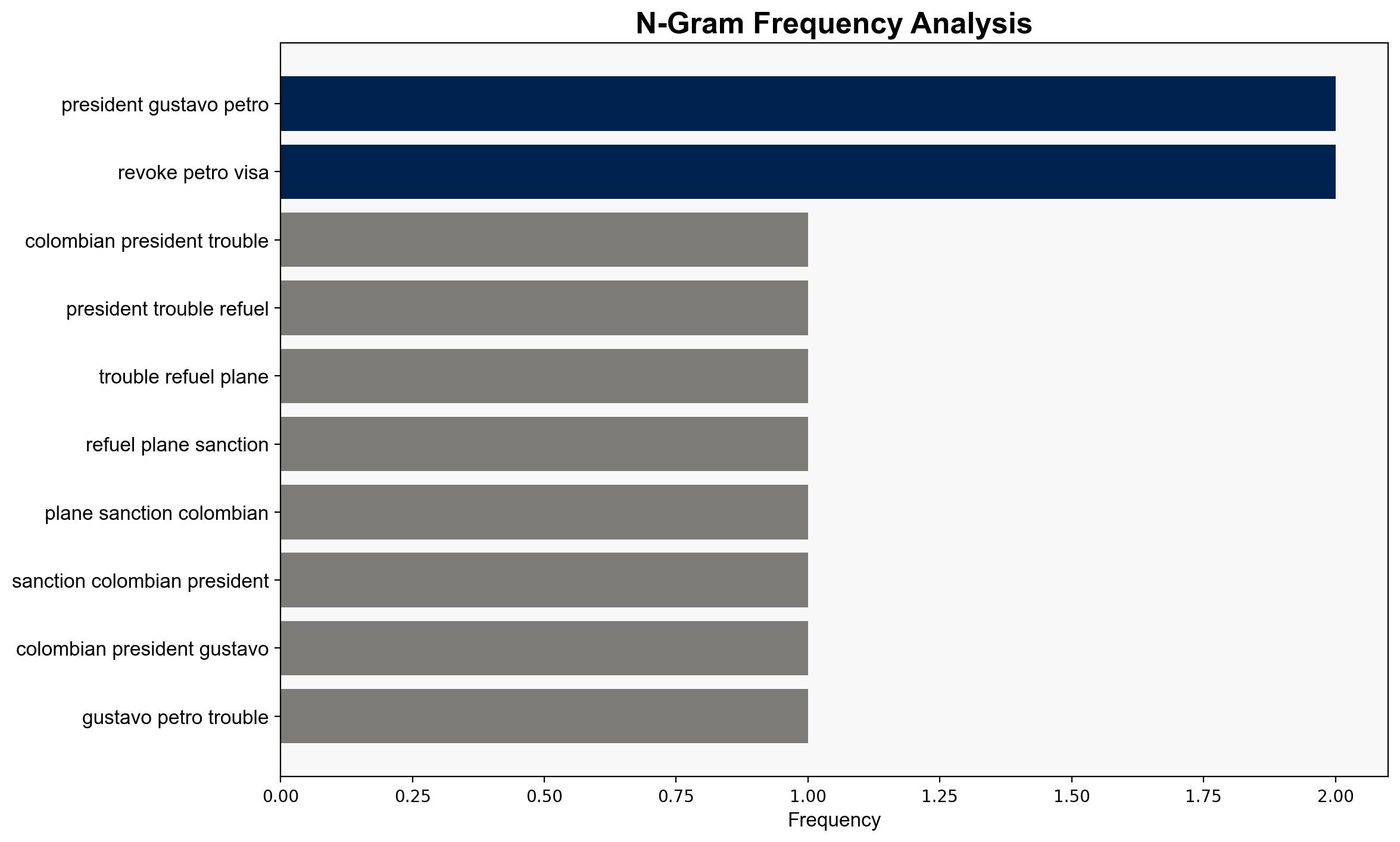Colombian president has trouble refueling his plane after US sanctions – CBS News
Published on: 2025-10-31
Intelligence Report: Colombian president has trouble refueling his plane after US sanctions – CBS News
1. BLUF (Bottom Line Up Front)
The most supported hypothesis is that the refueling issue faced by Colombian President Gustavo Petro is a direct consequence of US sanctions, which are part of a broader strategy to pressure his administration due to alleged ties with drug cartels and opposition to US foreign policy. Confidence Level: Moderate. Recommended action includes diplomatic engagement to clarify the scope of sanctions and mitigate unintended diplomatic fallout.
2. Competing Hypotheses
1. **Hypothesis A**: The refueling issue is a direct result of US sanctions aimed at pressuring President Petro due to his alleged connections with drug cartels and opposition to US policies.
– **Analysis**: This hypothesis is supported by the fact that Petro and his family members are on the OFAC sanctions list, and the refueling denial aligns with typical sanction enforcement actions.
2. **Hypothesis B**: The refueling issue is a result of miscommunication or over-compliance by the Spanish authorities, rather than a direct enforcement of US sanctions.
– **Analysis**: This hypothesis considers the possibility of over-cautious behavior by Spanish authorities or companies to avoid potential penalties, despite not being directly instructed by the US to deny services.
3. Key Assumptions and Red Flags
– **Assumptions**: Hypothesis A assumes that the US sanctions are effectively communicated and enforced internationally. Hypothesis B assumes that Spanish authorities acted independently without direct US pressure.
– **Red Flags**: The lack of direct communication from US authorities to Spanish entities about specific actions against Petro. The potential bias in interpreting Petro’s opposition to US policies as a primary reason for sanctions.
4. Implications and Strategic Risks
– **Geopolitical Risks**: Strained US-Colombia relations could impact regional stability and cooperation on drug trafficking and migration issues.
– **Economic Risks**: Sanctions could affect Colombian economic interests, particularly if other countries follow suit in enforcing similar measures.
– **Escalation Scenarios**: Increased diplomatic tensions could lead to reciprocal actions by Colombia, potentially affecting US interests in the region.
5. Recommendations and Outlook
- Engage in diplomatic dialogue with Colombian and Spanish authorities to clarify the intent and scope of sanctions.
- Monitor for potential retaliatory measures by Colombia that could impact US interests.
- Scenario Projections:
- Best Case: Diplomatic resolution leads to a clearer understanding and limited impact on bilateral relations.
- Worst Case: Escalation of tensions leads to broader regional instability.
- Most Likely: Continued diplomatic friction with sporadic incidents affecting bilateral cooperation.
6. Key Individuals and Entities
– Gustavo Petro
– Veronica Alcocer
– Nicolas Benedetti
– Scott Bessent
– Daniel Kovalik
7. Thematic Tags
national security threats, geopolitical tensions, sanctions enforcement, US-Colombia relations





